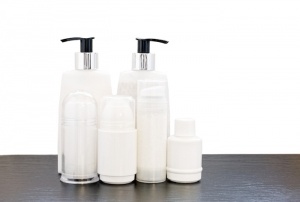
Male or female, young or young at heart, if you use skincare products it’s safe to assume you’re committed to keeping your skin healthy and attractive. However, some of the products you rely on to achieve those goals may actually increase your risk of sunburn – which can put you at a greater risk of developing skin cancer. It can also make your skin show more wrinkles, sunspots and other signs of premature aging.
Four Products That Can Cause Sun Sensitivity
Below are four types of products you may be using that are known to cause sun sensitivity and could increase your likelihood of sunburn, especially if you’re not using SPF.1. Cosmetic Skin Treatments and Products That Can Backfire in the Sun
Demand for over-the-counter and prescription products to smooth fine lines and lighten dark spots, as well as firm, plump and exfoliate the skin are in high demand. One 2015 study conducted by the Global Cosmetic Industry estimated that the U.S. skin care market will reach $11 billion in sales in 2018.Consumers who buy skincare products to keep their skin looking younger and/or clearer often reach for products whose ingredients include alpha-hydroxy acids, beta-hydroxy acids, tretinoins (found in Retin-A) and benzoyl peroxide (found in acne treatments).These ingredients keep the skin looking radiant by stripping away the outer layer, revealing the young skin underneath. The problem is, while the outer layer of the skin may appear dull to the eye, it provides valuable protection from the sun’s ultraviolet (UV) rays. When it’s removed, the skin underneath is especially susceptible to sunburn. Prescription skin care products and treatments typically contain higher concentrations of these ingredients. The higher the concentration, the more prone the skin will be to sunburn.
2. Essential Oils and Scented Products May Lead to Greater Sensitivity to the Sun
Be mindful of the scent of products that you apply to your skin. Perfumes may cause sensitivity to the sun when rose or musk scents are present. Likewise, certain essential oils can make your skin more prone to sun damage. These include lavender, rosemary, sandalwood and most citrus oils among others.
3. Other Medications That You Don’t Apply To Your Skin
Medications that have nothing to do with your skin may have the unwanted side effect of increasing your skin’s sun sensitivity. These medications include:
- Allergy treatments containing diphenhydramine
- Heart medications (such as Cordarone and Procardia)
- Pain relievers (such as Advil, Aleve and Motrin)
- High-blood-pressure medications (such as hydrochlorothiazide)
- Diabetes medications (such as sulfonylureas)
- Antibiotics (such as tetracyclines and sulfa drugs)
- Chemotherapy drugs (such as imatinib and dasatinib)
4. Some Foods Also Increase Your Risk of Sunburns
Even more surprising is the fact that some foods and herbs can increase your risk of sunburn, too! After you consume celery, dill, figs, fennel, lime, parsley or grapefruit, take steps to shield your skin from the sun as these foods have been shown to increase your skin’s sunburn risk. Also, when citric food (or their juices) is applied to the skin can cause a chemical burn with it reacts with the sun. This sun-induced condition is referred to as phytophotodermatitis. So be careful with that glass of lemonade!
What Should You Do If Your Using a Product That Causes Sun Sensitivity?
If you find that you’re using a product that may be increasing your risk of sunburn here is what you should do to protect your skins from those risks, which could possibly lead to skin cancer.
Being aware is the first step.
Knowing that you could potentially have a higher risk for sunburn is important so that you are careful to think about what products you use before a long day outdoors.
Check your product labels.
Check the labels of any medications or skin treatments you’re using to determine if they include any of the trigger ingredients listed above. Or in some cases they’ll simply tell you that you need to be extra careful in the sun.
Wear sunscreen every day.
This includes your face, neck, hands, arms or other areas that are exposed regularly. In the Portland, Oregon area we don’t see the sun as often as some areas of the country, but it doesn’t matter. You can still have the effects of the sun’s ultraviolet rays on a cloudy day.
Regardless of whether you are using any of the listed products or not, the skin cancer specialists at Compass Oncology encourage you to always wear sunscreen and get a yearly skin exam to check for signs and symptoms of skin cancer. If you’re in the Portland, Oregon or Vancouver, Washington areas and are interested scheduling one, we encourage you to contact us at Compass Oncology to schedule your next exam.


